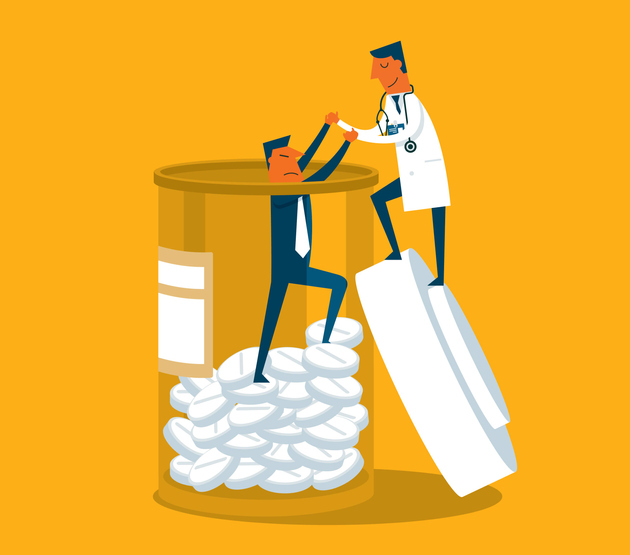What To Do When You Suspect Addiction
by Lauren Turner, CPhT

Addiction to drugs and alcohol can have devastating effects on a person's life. Death, overdose, homelessness, broken families, and loss of employment are some of the negative effects of substance abuse and addiction. When working in the pharmacy, there are safety checks in place to minimize misuse of prescription drugs. Controls such as early refill alerts and prescription monitoring programs, but what do you do if you suspect someone close to you is abusing drugs or alcohol? Knowing the signs and symptoms of addiction can lead to early interventions and better recovery.
What is Addiction?
Substance abuse addiction is a chronic disease in which a person cannot control alcohol or drugs, legal or illegal, despite the harmful consequences of their use. Sustained drug use alters a person's brain chemistry, affects the brain's reward center, and releases dopamine, producing a euphoric feeling or a "high." As time progresses, larger doses of the drug are needed to produce this high, increasing the risk of overdose. Addiction can occur after experimenting with a drug once or using prescribed medications such as opioid painkillers. How fast a person becomes addicted varies between the different types of drugs. When a person becomes addicted, it can take over their lives and reduces self-control.
When most people think about drug addiction, illegal drugs like heroin, cocaine, and methamphetamine come to mind. However, substance abuse addiction can occur with any mind-altering substance-legal or illegal, like alcohol, nicotine,or drugs that a clinician prescribes. The National Center for Drug Abuse Statistics states that 10.1 million or 3.7% of Americans have misused opioids at least once over 12 months, and 1.6 million or 15.8% qualify as having an opioid use disorder(National Center for Drug Abuse Statistics, 2022). As a Pharmacy Technician, it is crucial to be aware of the behavioral and physical signs and symptoms of addiction both in and out of the pharmacy setting.
Behavioral Signs and Symptoms of Addiction
A person battling addiction will display certain behavioral signs and symptoms such as:
•Missing work or school
•Decreasing performance at work or school
•Stealing money from family, friends, or work
•Unusual mood swings and aggressive behavior
•Secretive behavior and hiding where they have been or what they have been doing
•Missing money or valuables
•Isolation from family and normal activities
•Continuous early refills on medication
•Inability to function without the substance
The following physical signs and symptoms may occur concurrently with the above behavioral signs and symptoms:
•Extreme irritability
•Glazed or red eyes
•Cold, sweaty, and shaky hands
•Depression or anxiety
•Unsteady walking, stumbling around
•Extreme hyperactivity
•Sores or scars on the face
•Needle marks on extremities
•Nausea and vomiting
If you suspect someone you know has an addiction, it is important to talk with them about seeking treatment. It is essential to approach them in a positive and helpful tone and not criticize or shame them. Ensure you are compassionate and remember that addiction is like diabetes or high blood pressure. Many people suffering from drug addiction fear the physical symptoms that occur with withdrawing from the abused substance. It is imperative to seek professional medical advice to ensure a safe withdrawal from the substance.
If you or anyone you know is suffering from substance abuse addiction, call SAMHSA's (Substance Abuse and Mental Health Services Administration) National Helpline at 1-800-662-HELP (4357).
References
National Center for Drug Abuse Statistics. (2022). Retrieved from https://drugabusestatistics.org/
Pathways, 7. S. (2020, March 31). How to Help Someone Dealing WIth Addiction. Retrieved from 7 Summit Pathways: https://7summitpathways.com/blog/help-someone-with-addiction/






